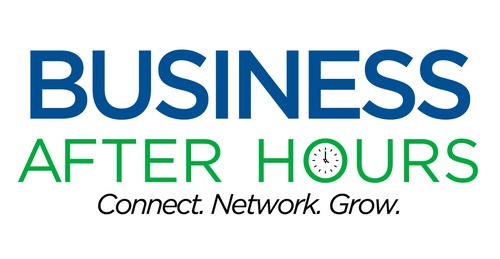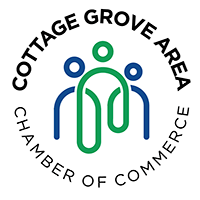
You're invited to the upcoming Chamber Business After Hours event - an exclusive opportunity to connect with fellow professionals, entrepreneurs, and community leaders in a relaxed and inviting setting.
Date: Thursday, March 14, 2024
Time: 4:30 - 6:00 pm
Location: Basic Needs Offices, 445 Broadway Ave, St. Paul Park, MN 55071
Join us for an evening of networking and collaboration as we foster meaningful connections within our business community. This is your chance to engage with like-minded individuals, exchange ideas, and explore potential collaborations that can propel your business forward.
We are collecting items for the NEW Basic Needs Food Market at this event.
Below is the most needed list of items:
1. Applesauce
Plastic jars of unsweetened applesauce provide a quick snack, fiber and vitamin C. Applesauce also keeps well on food bank shelves.
2. Canned Beans
Loaded with protein and fiber, canned beans provide an excellent, nutritious way to fill a hungry tummy. Opt for the low-sodium varieties whenever possible.
3. Canned Chicken
It’s simple to toss this non-perishable item into soups and casseroles or add it to a sandwich or cracker. Its versatility and high protein content make it a popular item at food banks.
4. Canned Fish (Tuna and Salmon)
Canned fish has vitamins, omega-3 fatty acids and protein, and it makes for a quick and easy meal. Food banks are most in need of canned tuna and salmon.
5. Canned Meat (SPAM, chicken, and Ham)
Grab some SPAM or canned ham and drop it into a food donation bin. It’s shelf-stable, doesn’t require much prep or equipment to eat, and delivers a quick hit of protein to keep individuals feeling full for longer.
6. Canned Vegetables
Colorful, nutrient-dense, and fiber-rich vegetables are always in high demand, and canned varieties last the longest on a food bank’s shelves. Look for low-sodium options. Food banks often hand out recipes using the items they have. Consider including this recipe for a hearty casserole made with canned veggies along with your donation for the food pantry to share.
7. Cooking Oils (Olive and Canola)
Food banks rely heavily on these essential and pricier items being donated. Canola and olive oils are the best choices because of their monounsaturated fats and mild flavor. Our guide to cooking oils can help make sure you’re buying the healthiest options.
8. Crackers
Perfect as a snack or as a base for canned meats, crackers are shelf-stable and portable, making them ideal for snacks and lunches. Whole grain crackers are the best bet.
9. Dried Herbs and Spices
It’s hard to cook a tasty meal without herbs and spices, so drop some in your cart to donate. Stick to the basics, like oregano, basil, cumin, pepper, rosemary, thyme, and cinnamon.
10. Fruit (Canned or Dried)
Fruit, whether dried, canned or in plastic cups, makes excellent snacks for kids and adults and provide some nutrition and fiber. Choose those that are packed in water or fruit juice rather than sugary syrups.
11. Granola/Snack Bars
Food banks are always in need of quick and easy items that families can toss into lunches or eat on the go, and granola bars are just the thing. Look for ones with less sugar made with oats or other whole grains.
12. Instant Mashed Potatoes
Instant potatoes last longer and require minimal tools and ingredients to whip up. They’re also a favorite of every age group, making them a popular item. Pass on this recipe for instant potatoes jazzed up with garlic powder for the food bank to share with its visitors (and send along some garlic powder too).
13. Meals in a Box
An entire meal that’s shelf-stable and in one package—dinner doesn’t get easier than that, which is plus for those without stocked kitchens. Look for pasta, rice, and soup kits, especially those that are lower in sodium and higher in fiber and protein.
14. Nuts
A handful of nuts provides protein and nutrients in a hurry and is perfect for snacks and lunches. Food banks have a hard time finding them due to their higher price, so donations are essential. Opt for unsalted varieties when possible.
15. Pasta
This is a food bank staple since it’s easy to turn into a meal. Whole grain varieties offer more fiber and nutrition than white pasta.
16. Peanut Butter
Kids and adults like it, and it’s high in protein, making peanut butter one of the most popular items at food banks. Look for varieties that are lower in sugar and check out our editors’ list of the best tasting picks.
17. Rice
It’s filling, versatile and easy to prepare and store. Skip the white stuff and donate brown rice, when possible, because it provides more fiber. Quinoa is also a great item to donate.
18. Shelf-stable and Powdered Milk
Because no fridge is required to keep this milk fresh, it’s accessible for everyone. Plus, it provides much-needed calcium and protein.
19. Soup, Stew and Chili
These canned or packaged items acts as a warm and filling lunch or dinner and often come complete with protein (meat) and veggies. If possible, try to find reduced sodium options.
So, if you happen to have any of these items in your cupboard (or, anything else that you would like to donate), please bring it to the meeting, thank you!
Agenda:
4:30 pm - Doors Open
5:15 pm - Attendee Introductions and Sponsor Spotlight
6:00 pm - Event concludes
Remember to bring your business cards and wear your nametag and RSVP for planning purposes.
We look forward to seeing you there!

Date and Time
Thursday Mar 14, 2024
4:30 PM - 6:00 PM CDT
Thursday, March 14, 2024
4:30 - 6:00 pm
Location
Basic Needs Office
445 Broadway Ave
St. Paul Park, MN 55071
Fees/Admission
Free to attend for members and guests.
Please register for planning purposes, thank you!
Contact Information
Laurie Levine
Send Email




